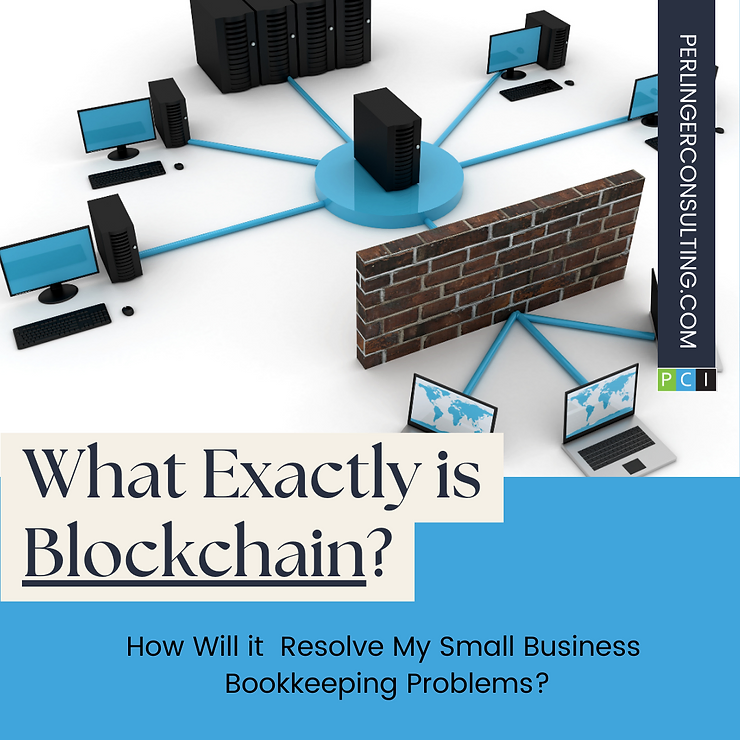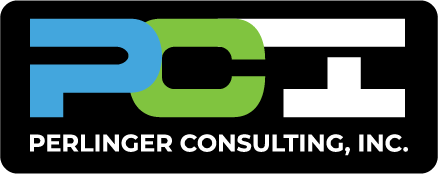Master Small Business Bookkeeping with Blockchain

As we navigate the dynamic business landscape of 2024, small business owners, much like yourself, are constantly on the lookout for innovative solutions to streamline their operations. One such groundbreaking technology that has caught the attention of many in the small business community is blockchain. Now, let’s break it down in simpler terms and explore how it’s reshaping the world of small business bookkeeping.
What Exactly is Blockchain?
Picture a ledger, a record-keeping book. Now, imagine this ledger is digital and shared across a network of computers. Every time a transaction occurs, it’s recorded in this ledger. But here’s the catch – once a transaction is entered, it can’t be changed; it’s locked in, creating a chain of unalterable records. That’s blockchain, in a nutshell. It’s like having a digital notary that confirms every entry is true and untampered with.
A Real-World Small Business Scenario – Master Small Business Bookkeeping with Blockchain in 2024
Consider a local coffee shop in your neighborhood. The owner, let’s call her Sarah, juggles various roles, from inventory management to ensuring her finances are in order. With blockchain, Sarah’s bookkeeping transforms dramatically:
- Transactions are Transparent and Secure: Every coffee bean purchase, every sale, and every payment to her staff is recorded securely and transparently. There’s no room for errors or fraud, giving Sarah peace of mind.
- Simplified Audits: Come tax season, Sarah’s accountant can quickly verify her records without sifting through piles of paperwork. Blockchain’s ledger provides an accurate, chronological trail of transactions.
- Streamlined Payments: Sarah pays her suppliers using blockchain-enabled transactions, which are fast, secure, and don’t require a middleman. This not only saves time but also transaction costs.
The Bigger Picture for Small Businesses
Integrating blockchain into your small business bookkeeping isn’t just a leap into the future; it’s a strategic move towards efficiency and security. Here’s what it means for you:
- Enhanced Data Integrity: Your financial records are accurate, complete, and tamper-evident.
- Reduced Costs: With blockchain, you cut down on administrative overhead and reduce the need for intermediaries.
- Improved Trust with Partners: Your suppliers and clients can rely on the transparency that blockchain brings, building stronger business relationships.
Getting Started with Blockchain
- Educate Your Team: Start by learning about blockchain. Resources like Blockchain Council are great for beginners.
- Assess Your Needs: Identify how blockchain can specifically benefit your business. It could be for secure transactions, supply chain management, or record-keeping.
- Find the Right Platform: Explore blockchain platforms suited for small businesses. Ethereum and Hyperledger are popular choicees.
- Seek Expert Advice: Consider consulting with a blockchain expert. You can connect with professionals through platforms like LinkedIn.
Overcoming Challenges with Blockchain
- Error Reduction: Previously, a single accounting error could snowball into significant financial discrepancies. Blockchain’s ledger meant that once a transaction was recorded, it remained accurate and consistent across all records.
- Enhanced Security: Dealing with sensitive financial information always posed a risk of breaches. The decentralized and encrypted nature of blockchain offered a new level of security against cyber threats.
- Streamlined Audits: Audits were time-consuming and disruptive. With blockchain, the transparency and traceability of transactions simplified the audit process, saving time and resources.
- Improved Efficiency: The automation of routine transactions through smart contracts (self-executing contracts with the terms directly written into code) saved the business owner countless hours that were previously spent on manual data entry.
Integrating Blockchain into Small Business Bookkeeping
- Start with Education: Utilize resources such as Investopedia’s Blockchain Guide to understand the basics.
- Identify the Right Application: Determine which aspect of bookkeeping will benefit most from blockchain – be it transaction recording, payroll management, or financial reporting.
- Choose a Blockchain Service: Research and select a blockchain service that integrates with existing accounting software. Services like IBM Blockchain offer robust solutions tailored for small businesses.
- Implement with Expertise: Consider hiring a blockchain consultant or reaching out to platforms like LinkedIn to connect with professionals who can guide the implementation process.
- Train Your Team: Ensure that your team is up-to-speed with the new system. Online courses from platforms like Udemy can be valuable for team training.The journey to integrating blockchain into your small business may seem daunting at first. But remember, every big change begins with small steps. As we progress through 2024, technologies like blockchain are not just fancy buzzwords; they are practical tools that can provide real solutions to everyday business challenges.
Real-World Success
Consider the case of a boutique owner who incorporated blockchain into their bookkeeping system. They witnessed a significant reduction in the time spent on reconciling and verifying transactions, allowing them to refocus efforts on strategic business growth. The trust and transparency of blockchain also boosted their credibility among suppliers and customers.
Looking to the Future
As we progress through 2024, blockchain in bookkeeping is not just a trend but a necessary evolution. For small businesses, staying ahead in this blockchain curve means gaining a competitive edge in terms of security, efficiency, and reliability.
Master Small Business Bookkeeping with Blockchain in 2024 can be simplified. Blockchain technology presents a unique opportunity for small business owners to revolutionize their bookkeeping practices. It’s about transitioning from traditional methods to a more secure, transparent, and efficient system. As the world of finance and technology continues to evolve, embracing these advancements is not just beneficial but essential for the success and sustainability of small businesses.
Remember, integrating new technologies like blockchain into your business practices is a journey of continual learning and adaptation, but one that promises substantial rewards.
Stay connected with us for more insights and strategies on leveraging technology for small business success. We’re here to guide you through every step of your business’s financial management transformation.
This blog is meant for educational purposes only. Articles contain general information about accounting and tax matters and is not tax advise and should not be treated as such. Do not rely on information from this website as an alternative to seeking assistance from a certified tax professional. Perlinger Consulting partners with certified tax professionals to assist our clients.
